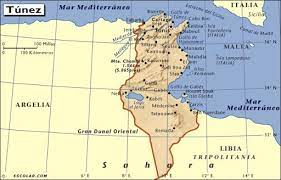Human rights and migrants’ rights organisations and collectives have raised an accusatory alert against the Tunisian government and claim that there is a repressive campaign “to satisfy European blackmail and guarantee a constant flow of financial and logistical support”.
According to information shared by the Forum for Economic and Social Rights in Tunisia, the borders with Libya and Algeria, as well as in the vicinity of Sfax, one of the most populated cities in Algeria and an obligatory passage for those heading towards the Mediterranean, the repression of migrants is much more serious: violence of all kinds, arbitrary arrests, destruction of property, for example. In addition, it is reported that these practices are also being used against those who are already living in the country as refugees, workers, and students and that those who are expelled are placed in detention centres.
Following the allegations, President Kais Saied has stated that Tunisia is not guarding Europe’s borders and that his government is not acting in exchange for money. What then is the reason for these repressive policies? A few months ago, Saied claimed that sub-Saharan migrations were a plan to change Tunisia’s demographics. These statements mobilised accusations of racism against the president. It seems, therefore, that two factors come together as unspoken arguments for these actions that violate the human rights of migrants: money and racism. If the country receives around 110 million euros in the European aid package to curb migration and, on the other hand, the flow of migrants is systematically increasing, it is worth considering these factors.
The Forum’s communiqué states that “sovereignty is not achieved by intimidating vulnerable groups and resorting to obsolete laws and discriminatory circulars, but by initiating national policies that guarantee the dignity, rights, and freedoms of all human beings”. It will then be policies that put human beings at the centre that will open the door to sovereign territories, welcoming societies, and fulfilling lives.






